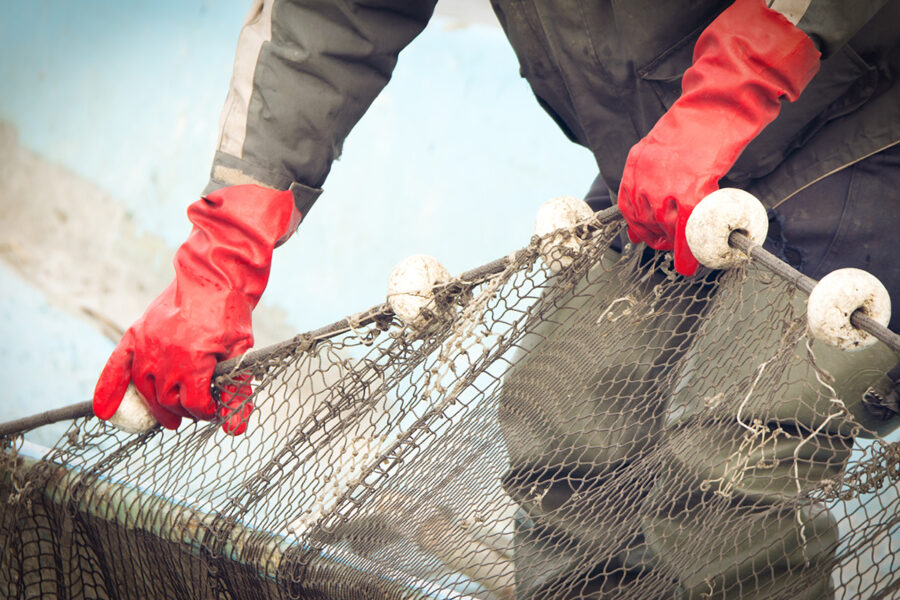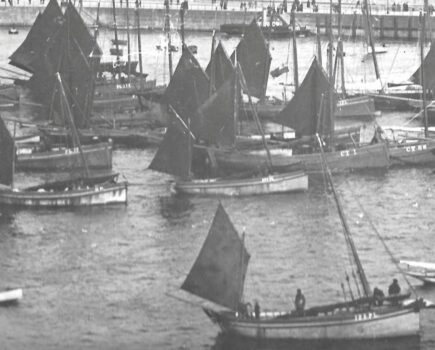The recent arrests under modern slavery legislation have sent shockwaves through sections of the fishing industry, with many skippers who have made the welfare of foreign crew a priority now wondering if they may nonetheless be at risk of modern slavery allegations. FN asked a specialist I’m the field to provide some advice
By Ashley Fleming
Modern slavery is a serious human rights violation that involves the exploitation of individuals for labour, often through coercion, deception or abuse of vulnerability. It is frequently a hidden crime that occurs in various industries, and has been recently highlighted as an issue within the UK’s fishing industry.
It is important that vessel owners and fishers understand what is meant by modern slavery, are able to identify the signs of modern slavery, and take steps to implement policies and processes to tackle it.
What is modern slavery?
Modern slavery is a broad term and encompasses a range of exploitative practices, including slavery, servitude, forced or compulsory labour, and human trafficking. Forced labour is the most common type of modern slavery within the fishing sector, and can happen when fishers are forced to work long hours for little or no pay in poor conditions under threat of violence or penalty.
Anyone can be a victim of modern slavery, but it can be more prevalent amongst foreign nationals who may be more vulnerable to exploitation for various reasons, not least being in a country where English is not their first language, and their immigration status being dependent or linked to their continued employment in the UK.
Due to its distinctive nworking conditions, the fishing industry can be more susceptible to instances of modern slavery. Risk factors include the remote working environment, with fishers often isolated on vessels, making them more vulnerable to exploitation, and the reliance on migrant workers who may lack knowledge of their rights in the UK, or fear seeking help due to concerns about their immigration status.
Preventing modern slavery
There are various steps that vessel owners can take to prevent modern slavery, including before any employment relationship has even begun. Using reputable recruitment agencies to source workers is an important step to preventing exploitative practices like charging recruitment fees which can lead to debt bondage. Checking candidates have the right to work in the UK is also essential. Regular monitoring of working conditions onboard vessels will help to ensure they are both safe and fair. Providing workers with contracts of employment, clearly setting out the terms of their employment, is also essential to workers understanding their rights and being able to identify when they are not being treated fairly.
Vessel owners should be on the lookout for signs of modern slavery so they can identify any concerns within their own workforce or wider supply chain and take steps to tackle it. Common indicators include workers showing signs of fear or distress, not being in possession of their own identity documents, working excessive hours in unsafe conditions, requesting their wages are paid into a third party’s bank account, and inconsistent payment or non- payment of wages.
The possible consequences of allegations of modern slavery within a business can be serious. There is a risk of criminal charges, with powers to detain vessels pending criminal investigation, as well as the reputational damage to the business and wider sector. Given the possible repercussions, the costs around prevention and detection of modern slavery are likely to be much less than the potential costs of doing nothing.
Recent allegations of modern slavery amongst the UK fishing fleets have shone a spotlight on the fishing sector. Attention has further focused on the issue following the UK government settling a human rights claim brought by migrant fishers recognised as victims of modern slavery. It is therefore prudent that vessel owners take action. By adhering to best practices and working collaboratively with authorities and organisations, the sector can lead the way in promoting ethical labour practices and safeguarding workers’ rights.
For the most part, the UK fishing industry is well aware of its obligations and responsibilities to those who choose to come here and work in it. It is an industry unlike any other in the country, particularly in terms of the harsh conditions under which boats go out to sea. Like any industry, the vast majority of operators act within the law and take the welfare and safety of their crews extremely seriously. However, like any industry, there are unscrupulous operators who have the potential to tarnish the reputation of the sector.
Ashley Fleming is a partner and head of the immigration team at law firm Harper Macleod. She is accredited by the Law Society of Scotland as a specialist in immigration law, and is dual- qualified in Scotland and England and Wales.
This story was taken from the latest issue of Fishing News. For more up-to-date and in-depth reports on the UK and Irish commercial fishing sector, subscribe to Fishing News here or buy the latest single issue for just £3.50 here.
Sign up to Fishing News’ FREE e-newsletter here.








